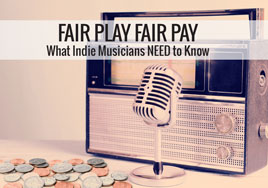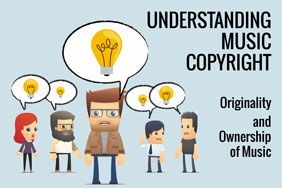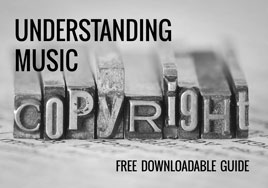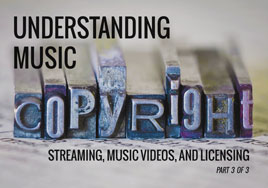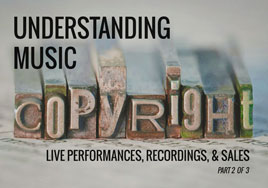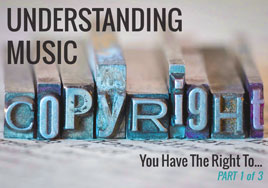What Independent Musicians Need to Know About Fair Play Fair Pay
By Estimated reading time: 6 minutesTake a minute and journey with me into the muddy waters of licensing, royalty payment, and copyright. If you’ve had much experience with these things in the past, you quickly realize that the way that copyright holders in the United States get paid is a complicated mess.
Unfortunately, this mess is one of the most important things for artists and musicians to understand. If you missed our series on understanding copyright, I recommend you take a few minutes and read them.
These articles will help give you a good foundation to understand the rest of this article, and why Fair Play Fair Pay is important.
What is Fair Play Fair Pay?
One of the odd quirks of copyright law is that the performing artist does not get paid when their song is played on traditional radio. When a song is played on your favorite FM radio station, the station pays only the owner of the underlying musical work. This usually means that the publishing company gets paid, and then they pay the writers of the song. This is different from digital radio services like Pandora, Sirius XM, and Spotify, which are required to pay royalties to the artist and owner of the sound recording copyright, in addition to the owner of the underlying musical work.
Currently, the United States is one of the only developed countries in the world that doesn’t also pay artists and sound recording owners when their music is played on traditional radio. But the Fair Play Fair Pay Act is trying to change that.
If the Fair Play Fair Pay Act passes, the artists and labels who own the sound recording (SR) copyrights would be entitled to compensation from the radio stations that are benefiting from the public performance (each spin on radio is technically a performance) of those works.
How Will Artists Get Paid?
The royalties earned from radio airplay would be directly paid to SoundExchange, a non-profit organization that was set up by the government to collect royalties from digital radio services. SoundExchange automatically divides royalties between artists and the SR copyright owner. The primary artist on the track will receive 45% of royalties, labels and SR copyright owners 50%, and other featured musicians on the track will get 5%.
The act will also specify a minimum payment amount based on how the radio station (internet, terrestrial, or streaming) uses those sound recordings, and whether or not the use is promotional. The royalty rate will be determined by the Copyright Royalty Board and not set into law by Congress, which is good news for artists since it’s much easier to renegotiate rates with the Copyright Royalty Board than with the Senate and House of Representatives.
Direct, negotiated licenses will still be available, but payment for the use of the sound recording will still have to go through SoundExchange.
This minimum payment is great news for artists. It means that a service like Spotify, or even Pandora, could possibly pay a higher rate because consumers are more involved in choosing the music they will listen to, unlike traditional radio where all the music is chosen for the listener.
Royalties From Around the World
Though it seems like a small thing, the fact that America is one of the last developed countries to implement this kind of royalty payment for traditional radio is a really big deal. Because America’s royalty payouts don’t look like the rest of the world’s, the American music industry loses about 100 million dollars annually.
This is because of a little thing called “reciprocal rights.”
Basically, if a radio station in the UK plays a song, they have to pay to play the underlying song, and pay the artist/label for paying the sound recording. If the artist is American, that money will come back across the pond. But it will only be the royalties for the underlying composition, because America doesn’t have a reciprocal (i.e. similar) right that says artists have to be paid.
If Fair Play Fair Pay passes, those reciprocal rights would kick in, and American artists would be payed the same as their European counterparts.
Other Aspects of Fair Play Fair Pay:
- This act also includes a provision to pay artists who released music previous to 1972, and do not receive any royalties when their music is performed. (You can read about that loophole in copyright here)
- The act will also make sure that small broadcasters, like college stations, and public broadcasters, like NPR, will pay a reduced royalty rate so that the changes in the law won’t force them out of business.
- The bill also gives SR copyright owners an easy way to make sure the producers and sound engineers who worked on their project get paid.
- If this law is passed, it will keep internet radio stations like Pandora from trying to lessen their payments to artists. You can read about that fiasco here.
Why is Fair Play Fair Pay Important for Independent Musicians?
Fair Play Fair Pay will mean more money in the hands of artists. And if you are an independent musician who owns both copyrights to your songs, when your songs are played on terrestrial radio, you will get 95% of that royalty rate, plus what you would already be making from the underlying copyright.
This act is a step in the right direction for the major copyright overhaul that is desperately needed, and that musicians and other creators have been asking for since the early 2000s.
Independent musicians are by far the largest force in the music industry. Our main problem is that we don’t know how to band together and use our powers for good!
When legislature comes up before Congress that will positively affect musicians across the board, indie musicians should be the most excited. And in the case of a new law passing, musicians can actually do something by emailing their representative and senators, and getting involved with organizations like GRAMMY On The Hill, or the Future of Music Coalition, that are working to help get these bills turned into law.
If you’d like to get involved, you can click here to write to your congressional representatives, or even tweet at them!
Do you think the Fair Play Fair Pay Act should be passed? Do you think it will make a significant difference for artists? Let us know in the comments below!
Related Articles:
Understanding Music Copyright: Originality and Ownership
What To Do AFTER You’ve Finished Writing a Song
Music Royalties: What You Should Know
The Difference Between Songwriting in Nashville and New York
Leave a comment
...Keep Reading
